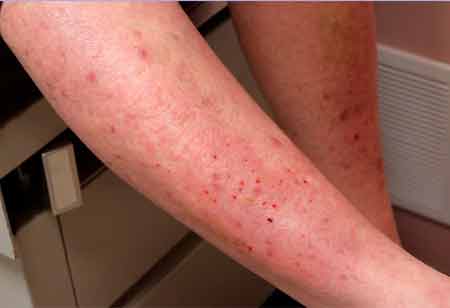Gluten and Eczema: Dietary Impact on Skin Health
The link between gluten and eczema is still being studied, but some individuals have found relief by adopting a gluten-free diet, potentially aiding in their eczema management.

By
Medical Care Review | Friday, June 21, 2024
Stay on top of your health and well-being with exclusive feature stories on the top medical clinics and treatment centers, expert insights and the latest news delivered straight to your inbox. Subscribe today.
The link between gluten and eczema is still being studied, but some individuals have found relief by adopting a gluten-free diet, potentially aiding in their eczema management.
FREMONT, CA: Eczema is a chronic inflammatory condition of the skin with itchy patches of redness and swelling. It is also referred to as atopic dermatitis. Although the cause of eczema is still not well defined, most people think it arises from a mix of genetic and environmental influences. Recently, some research has implicated gluten consumption with the symptoms of eczema, making diet modification the most viable remedy for managing one's eczema condition.
The Role of Gluten in Eczema
Eczema is a skin condition affecting 15-30% of children and 2-10% of adults, causing dry, itchy skin that can become red and inflamed. This condition usually starts in childhood and persists into adulthood. Eczema flare-ups can be triggered by allergens, stress, and certain foods. Gluten, a protein generally found in wheat, barley, and rye, can cause digestive issues and skin problems in individuals with celiac disease or gluten sensitivity.
Some have reported improvements in symptoms with a gluten-free diet. Still, the relationship between gluten and eczema has yet to be fully understood, and more research is needed to establish a definitive link.
Dietary Strategies for Managing Eczema
If you suspect that gluten may be affecting your eczema, consider the following dietary strategies:
Elimination Diet: An elimination diet involves removing gluten-containing foods from your diet to see if the symptoms improve. If you notice a reduction in eczema flare-ups, you may have a gluten sensitivity.
Consult a Professional: Before making any major changes in your diet, it is suggested that you consult a healthcare professional or a dietitian. These professionals can help you design a balanced diet that meets the nutritional needs your body needs while avoiding potential triggers.
Focus on anti-inflammatory foods: Incorporate foods with anti-inflammatory properties, such as fruits, vegetables, fatty fish, and nuts. These foods help reduce inflammation in the body, potentially alleviating eczema symptoms.







